Young people who stay at home
According to Ifop, 84% of young people surveyed know that European elections are taking place this year. The polling agency used a representative sample of 1,498 French people aged 18 to 25. 79% of the young people say that they have registered to vote (a drop from 87% in March 2017) but among these 77% say they don’t plan to go vote on 26 May. An alarming figure!
In the 2014 European elections, 27% of young people in France went to vote. However, the Ifop survey suggests that we should expect a decrease in the turnout rate among this segment of the population. The survey indicates that 77% of young people who say they’re registered to vote plan to stay at home in the next European elections. This is already 4 percentage points higher than the non-voting rate from 2014.
Convinced Europeans will also be saddened by the finding that 68% of young people surveyed have little or no interest in the European election campaign.
But for what reasons do these people plan to stay at home?
According to the survey, it seems that young people don’t feel very concerned by this election, as 16% of them say that the main reason why they won’t vote on the 26th is that they’ll be enjoying their weekend, on holiday, or out of town. The second-most frequently cited main reason is the lack of information about the candidates and about the lists present in the elections (13%).
However, the reason that is given the most often to justify staying at home is the impression that the elections will change nothing, on the one hand for society, but on the other hand for young people themselves (respectively, 23% and 20%). Here, we can detect a certain defeatism on the part of the respondents.
Indeed, the survey unfortunately confirms the current tendency, as the figures show that young people won’t be voting because they feel that their voice doesn’t count, or won’t be heard. In 2016, a study by the BVA institute showed that 86% of young people don’t feel represented in politics.
However, staying at home is not meant to demonstrate discontent towards the EU, or because the topic doesn’t interest young people. On the contrary, these reasons are only cited by 8% and 5% of the respondents, respectively.
The young people who do vote, vote for Europe
The survey shows, nonetheless, that a majority of the young people who have chosen to drop a ballot in the urn on May 26 will be voting on European topics (54%), rather than national ones (46%). 50% of young people surveyed wish to express their disagreement with the way in which the EU is run today. When asked about factors that could incite them to go vote, 77% of the respondents say that the most important element is for their ideas to be represented in the candidates’ programmes.

But young people also demand there to be more information about Europe. Indeed, 69% of those questioned say they are poorly informed about the EU, its institutions and its functioning. They also want a high-quality campaign for the European elections, but the campaign doesn’t necessarily need to have a European dimension as 52% of the respondents say that a campaign giving a voice to candidates from other European countries isn’t an element likely to encourage them to go vote.
Same thing for televised debate between European-level parties’ lead candidates (Spitzenkandidaten) who are striving towards European Commission presidency: 51% of young people surveyed say that this won’t be a factor determining whether they vote on 26 May.
Young people undecided and divided on the political spectrum
The young people surveyed seem undecided: only 50% of those who say they want to go vote are certain about their choice, while the other half is still hesitating about which party to vote for.
The Ifop survey also shows that the voters of the far-right Rassemblement National (previously known as Front National) are more certain about their choice, while indecision is palpable on both the left and the right. The Greens seem capable of snatching votes from almost all competing party lists, from the centre-left Génération.s to the nationalist Debout La France, as surprising as this may seem.
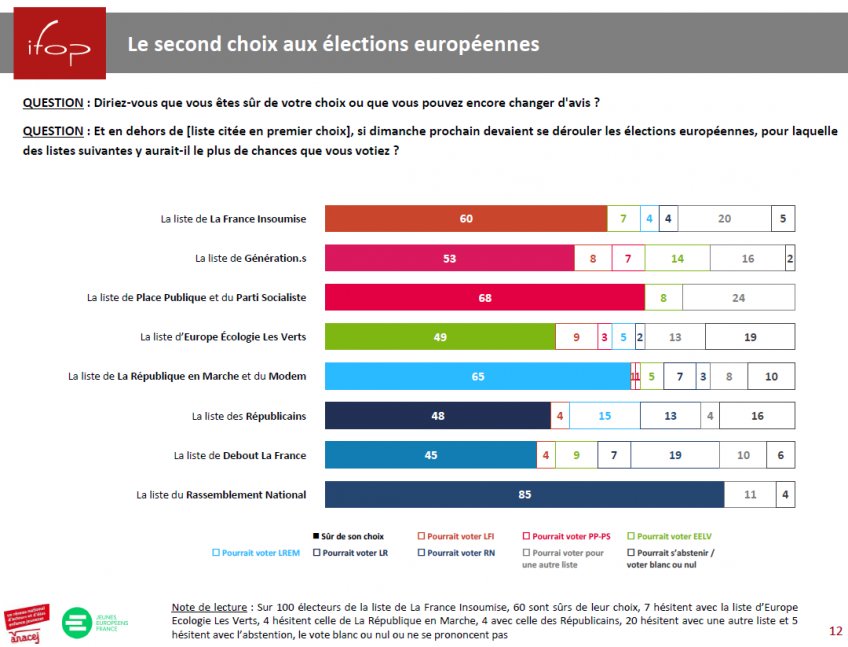
As among the general population, among young people too the lists of President Emmanuel Macron’s La République En Marche and of Marine Le Pen’s Rassemblement National (RN) are neck and neck, with 19% intending to vote both, followed closely by the Greens at 16%, and by the leftist La France Insoumise at 12%.
This is a particularly concerning finding, given that RN has a nationalist, sovereignist line that would entail a weakening of the European project. So do young people not support the European project? Let’s not say that: indeed, a majority of young people who plan to vote on 26 May say they want to vote for pro-European parties.
It’s interesting to see the division of the young electorate on the left and at the centre of the political spectrum, as well as the differences with voting intention at the national level showing that young people are less willing to vote for centrist and right-wing parties than their elders. Only 9% of young people registered to vote say they’ll cast their vote for the right-wing Les Républicains, compared with 15% of voters at the national level.
Besides, young people display very weak support for a list of the gilets jaunes protest movement; perhaps they do not recognise themselves in the movement?
Rather national than European concerns?
Jobs, costs of living, health, education. When asked about issues they vote on, young people primarily invoke concerns on which the EU unfortunately has few competences to act, but on which it can ease cooperation between member states. 63% of young people who intend to vote say that the question of purchasing power has a lot of bearing on their final decision, followed by the issue of jobs (61%). The environment, for its part, only comes fourth, which may seem surprising after the recent pro-climate mobilisation across Europe.
This survey also shows that young people tend to form their opinions themselves: 44% say that they decide their opinion themselves, 18% take into account the views of their family, 13% those of their friends. On the other hand, they only pay relatively little regard to the views of journalists or of experts heard in the media.
Finally, the Ifop survey underlines that few young people trust the European institutions (29%). These alarming results should ring the alarm bells of national and European decision-makers, as well as those of media who are covering the campaign.
77% of young people asked say they plan to stay at home in the European elections, how will the political parties react? In the context of a nearly nonexistent campaign that is struggling to launch, how can young people feel concerned with and understand the issues of these elections if candidates don’t talk about Europe, focus on national issues and don’t go to meet voters?
It’s time to mobilise. Young people are no lesser citizens than their elders, and it’s inconceivable that an entire segment of our generation don’t participate in the elections or aren’t represented. Granted, young people are the future, but above all they are the present of our societies.
On 26 May, don’t let others choose your MEPs in your stead – go vote!
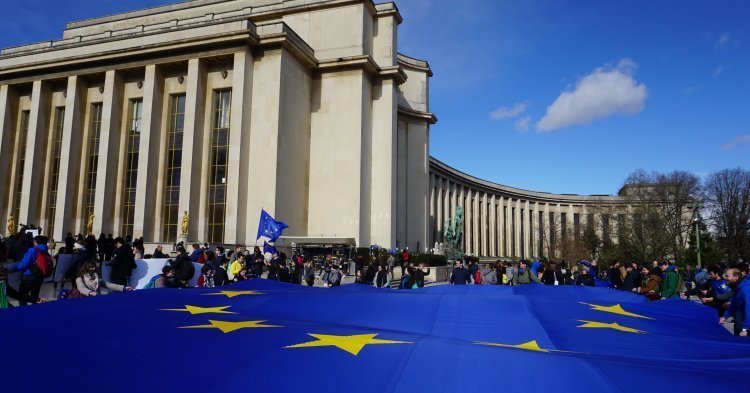
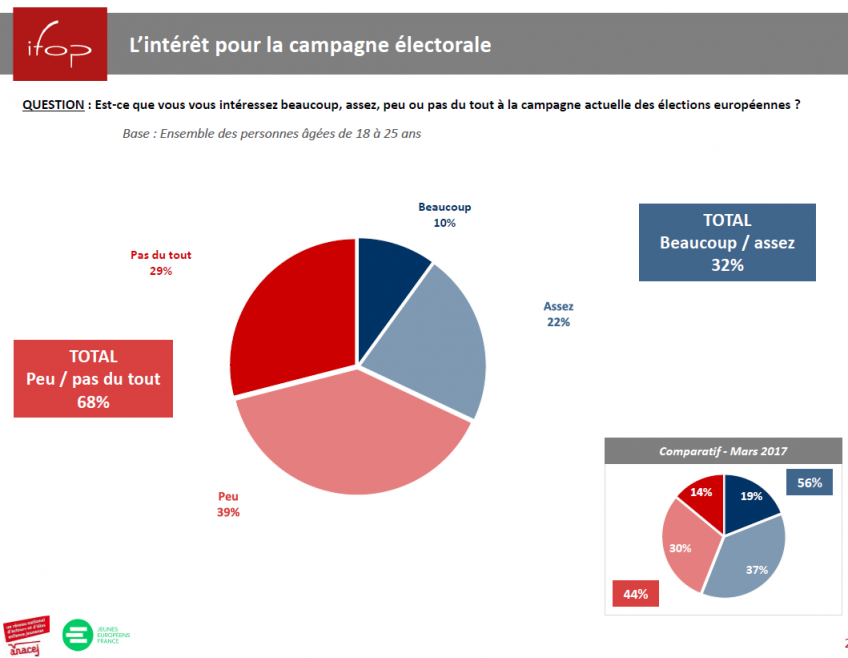
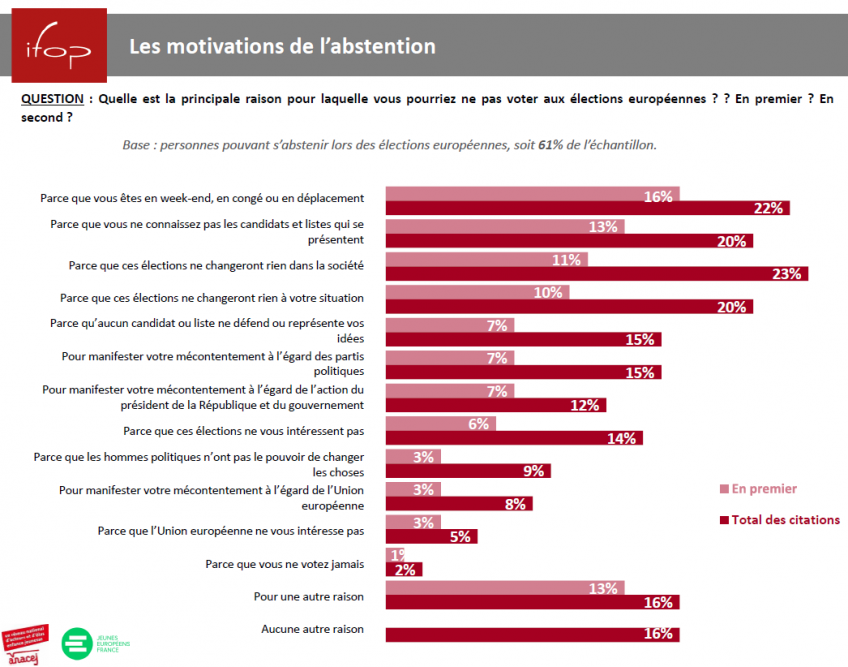
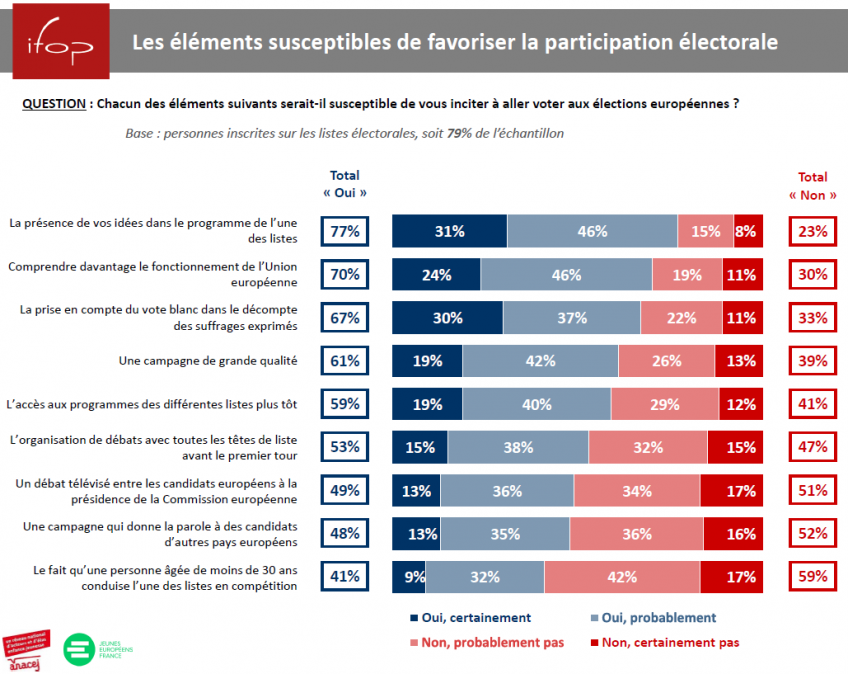
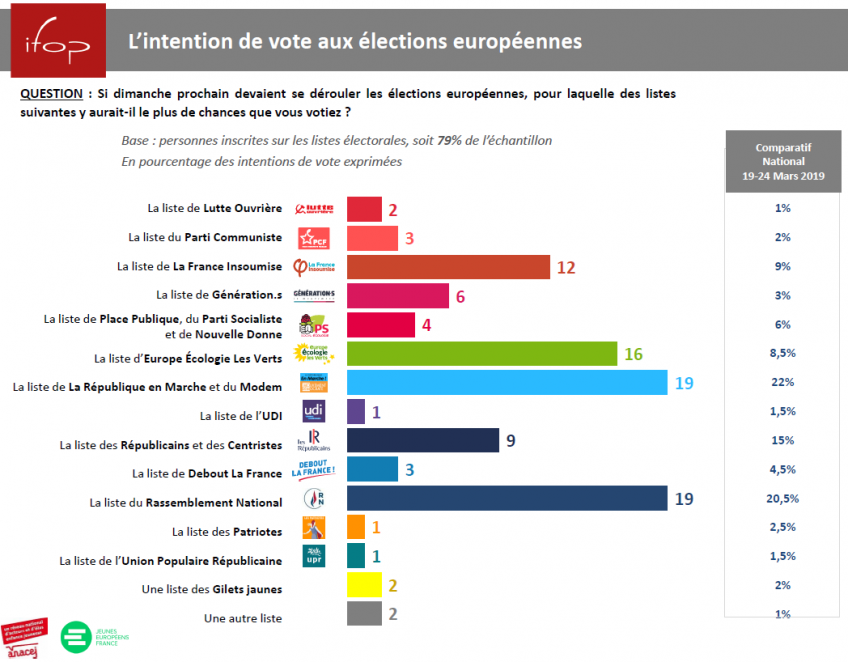
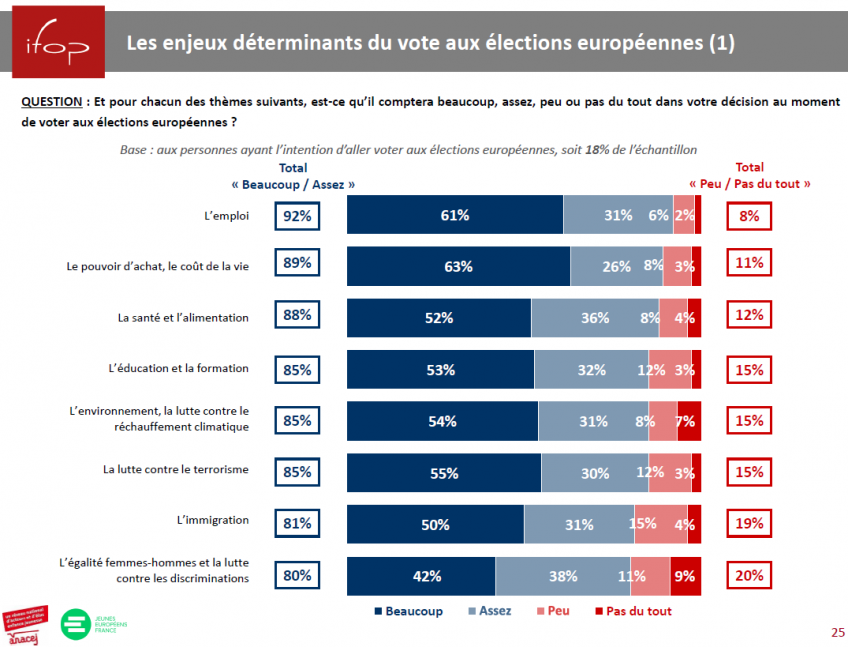


Follow the comments: |
|
